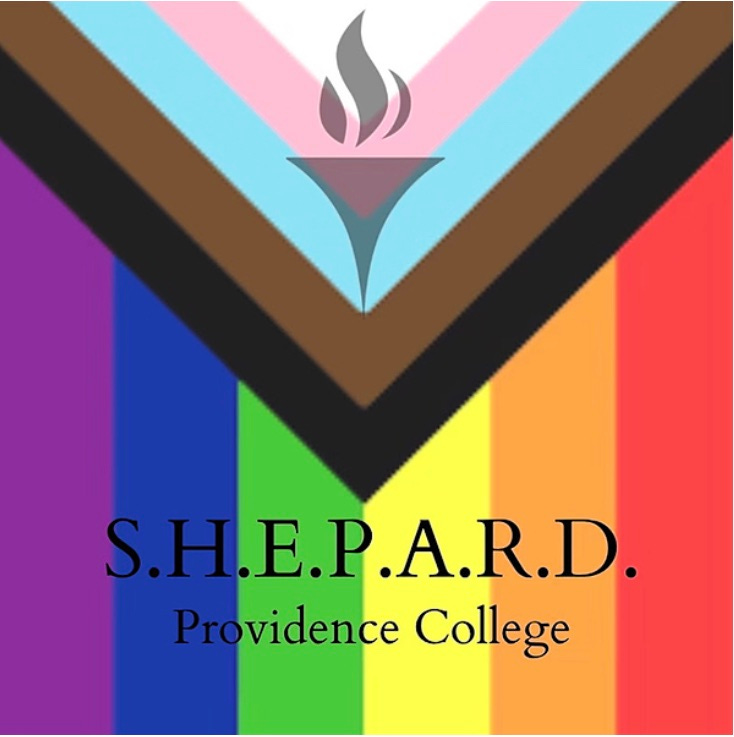SPIRIT WOW: IN A MOMENT OF CRISIS, PROVIDENCE COLLEGE'S QUEER COMMUNITY PROVIDES AN EXAMPLE FOR EVERYONE
Excavate Your Queer History.
Last week over 500 faculty, alumni, staff and students of the Catholic Providence College issued a letter of protest in light of the resignation of E Corry Kole, the school’s nonbinary director of Diversity, Equity, and Inclusion. Kole had quit citing the college administration’s refusal to let them do their job.
Queer employees of Catholic institutions feeling threatened or driven out is sadly an all too common phenomenon, and usually a horribly dispiriting one for the broader Catholic community in which it occurs.
But what I find particularly striking about the Providence community’s response is that they begin their comments by putting the current moment into the broader context of the broader history of LGBTQ+ struggle for dignity and inclusion at the college. As early as 1961 there were talks by prominent figures at Providence challenging the social and religious thinking of the day on homosexuality. In 1968, a year before Stonewall, the college’s faculty and students had created an interdisciplinary course that studied sexuality alongside issues of race and poverty.
The letter’s short history identifies the school’s first openly gay community member, math professor Dr. Hubert Kennedy; the first two students to write anonymously about being gay; and goes into depth about the creation of the school’s LGBTQ+ group SHEPARD (“Stopping Homophobia, Eliminating Prejudice, and Restoring Dignity”), whose very name is an act of historical remembrance. Gay University of Wyoming student Matthew Shepard had been murdered just a few years earlier.
In part, tracing the queer history of Providence provides a useful way of understanding the current situation. Kole’s experience is a part of a much longer struggle to respect and accept the school’s queer community.
In seeing that larger history, you also discover patterns. For me, the most striking element of the letter is reading about the administration’s repeated refusal over the years to allow SHEPARD to ever use the term “pride.” Can you imagine a respected institution in this country telling a group of women they are not allowed to use the term “pride” in reference to themselves? Or people of color? People who are other-abled? Adherents to other religion traditions?
Of course not, and not only because the institution would probably be sued, but because it would signal that the institution thinks that that group of people should not have pride in themselves, that they are somehow shameful. And what institution would possibly argue that? But somehow with the queer community it’s entirely okay to insist the gay community is not allowed to publicly express pride in themselves, or to describe events they sponsor as Pride events.
The Providence community letter doesn’t get bogged down in any of this—it really is just trying to lay out the history, both positive and negative.
I’ve seen plenty of Community-to-the-Catholic-Administrators letters like this over the years, but I’m not sure I’ve seen any that offer this kind of historical place setting. And I think it’s a great model for other Catholic communities, not only in moments of crisis but in general. Whether we know of it or not, every Catholic institution has an LGBTQ+ history. Taking the time to research and tell those stories has a lot of benefits. It gives everyone within the community a common language within which to understand who they are now and the issues that they face. Providence can’t argue that the situation of E Corry Kole is an isolated incident, just a professional relationship that didn’t work out. There is a bigger history here that must be faced.
Researching and sharing your institution’s queer history also allows the queer community of that institution to claim its own communion of saints—the people who have been important in the struggle and growth of that community over the decades. Time has a way of burying the figures of the past, even important ones, such that later generations don’t know they existed, or have little sense of what they contributed.
And yet those people and their experience have so much to offer. I found the Providence college newspaper interview with Dr. Kennedy after he came out to his Modern Algebra class in 1976. It’s quite tender and powerful. The letter also mentions Paige Clausius-Parks and Elizabeth Hansen, who co-founded SHEPARD. No doubt their stories and those of other queer leaders over the years are also well worth excavating.
The figures of our history expand our sense of what it means to be who we are. They tell us where we’ve come from, and become people we can look to for encouragement or strength. Shining a light on their stories is a way of claiming and living with pride, one that no institution can take from us.
The president of Providence College has promised a statement after Easter about Providence College’s stance towards LGBTQ+ people. He says he’s been working on it for years, which sounds like the kind of time a diocese or the conference of bishops might take on a major statement of doctrine. But actually it’s much longer. (Also, he’s not a bishop or diocese.)
We’ll see what his work amounts to. But it’s very clear, no one at Providence is looking for a thesis on homosexuality right now. They’re looking for people who will enter into the experiences and history of the queer community at the college and try to listen for where the Spirit is moving there.
Because the other thing that you discover in excavating the queer history of your institution is that there is so much goodness there waiting to be tapped, so much life just waiting for a chance to grow.



